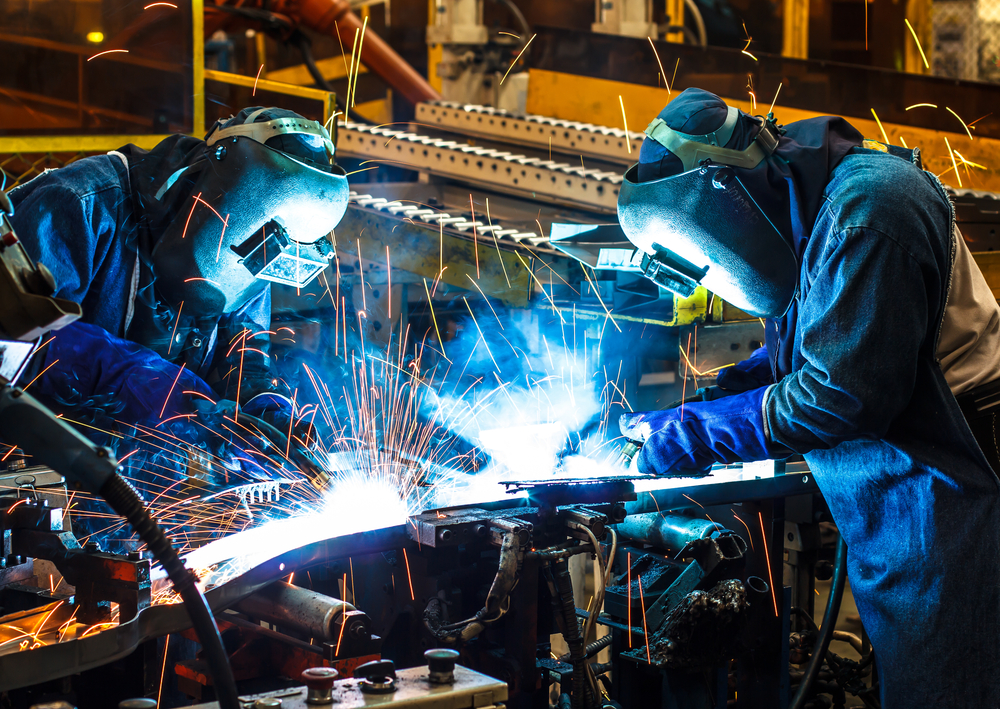Steel Fabrication: 8 Expert Tips You Should Know Before You Start
Steel fabrication is a complex process requiring a refined combination of skill, industry knowledge, and seasoned experience. From erecting monumental bridges and skyscrapers, to assembling components for machinery and equipment utilised across a selection of different industries, steel fabrication plays a crucial role in wider society.
If you’re planning to embark on a new project, our specialists at KNS Metals have compiled eight expert tips and a guide to steel fabrication that you should know before you get started.
What is Steel Fabrication?
Steel fabrication is the process of manipulating raw steel into a final product. This process can involve cutting, welding, bending and assembling the steel to create products such as structural frames, tanks, stairways, handrails, security grills and other items.
Whether you are a seasoned professional or new to the field, the steel fabrication process requires precision and skill to produce high-quality results since it involves elevated temperatures and heavy equipment.
Our Guide to Everything You Need to Know for Custom Stainless Steel Fabrication
1. Understand the properties of steel
Steel is an alloy of iron and carbon, and its properties vary depending on the amount of carbon and other materials it contains. Knowing the properties of the specific type of steel you are working with will help you choose the right tools and techniques for the job.
For example, structural steel is solid and durable, making it ideal for building construction, while stainless steel is corrosion-resistant, making it suitable for food processing equipment. Pay attention to factors like hardness, ductility, and tensile strength to determine which type of steel will work best for your application. To find out this information, you can speak with specialist structural steel fabricators.
2. Select the right tools and equipment
Fabricating steel requires a range of specialised tools and equipment, such as saws, shears, presses, and welding machines. Choosing the right tools will ensure that you can cut, bend, and assemble steel accurately and efficiently. If these aren’t available to you, then it helps to enlist the services of professional structural steel fabricators.
3. Consider the size and weight of the steel
The size and weight of the steel you utilise will affect the cost and feasibility of your project. For example, large, heavy steel components may require specific equipment and transportation methods, which can add to the cost of your project.
4. Plan for transportation and installation
Steel fabrication involves cutting and shaping steel into the desired shape and size, making it difficult to transport and install. Before starting your project, plan for the transportation and installation phases of your steel components.
5. Plan your work carefully
Have you heard the expression, ‘measure twice, cut once?’ Before you start fabricating steel, it is important to have a clear plan in place to avoid any waste or delays. This includes creating detailed drawings, calculating the amount of steel you need, and determining the sequence of steps required to complete the project. Proper planning will help you avoid mistakes and complete the job on time and within budget.
6. Use the correct cutting technique
There are several different methods for cutting steel to derive the desired result, including sawing, shearing, torch cutting, and laser cutting. The right technique will depend on the type of steel you are working with, the thickness of the material, and the planned project outcome. Applying the correct technique will help you achieve clean, accurate cuts.
7. Follow safety guidelines
Steel fabrication can be a dangerous task if proper safety precautions are not taken. Always wear protective gear, such as gloves, goggles, and earplugs, and make sure to keep your work area clean and organised. Follow safety guidelines and use common sense to avoid accidents and injuries.
8. Work with experienced structural steel fabricators
Steel fabrication is a skilled trade that requires not only a range of specialised tools and facilities, but also experience to ensure a high-quality finished product. Rather than risking the project on your own, working with qualified, structural steel fabricators with a wealth of industry experience can make a big difference in the quality and success of your results.
At KNS Metals, we provide a full suite of steel fabrication services. With over 30 years of experience in the industry, we have completed all manner of projects for clients in various sectors. If you would like to learn more about how we can assist with your next project, please do not hesitate to contact us today.


